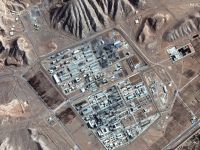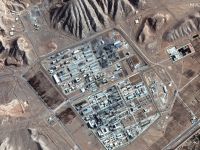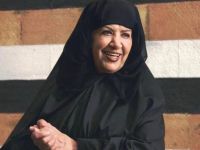HCT’s Female Engineering Students Helping to Meet National Industry Demands

The traditionally male oriented field of Engineering is taking on a new look at the Higher Colleges of Technology (HCT), with the federal institution experiencing a six-fold increase in the number of female students enrolling in this male bastion.
The HCT’s Faculty of Engineering Technology & Science has almost 5,000 students studying engineering courses, making it the largest engineering teaching institution in the UAE. The attraction of strong, industry-relevant degree choices and good employment opportunities are two leading factors for these robust enrollment figures.
Not surprisingly, the attractions of this in-demand profession are extending to women, with female students making up over one-quarter of the HCT’s total number of engineering students. Enrollments by female students in HCT Engineering courses have increased by almost 510% from the 2008-09 academic year (206 students) to the current year (1254 students).
The HCT figures compare favourably with data from the USA. According to the US Society of Women Engineers, women and other minorities constituted approximately 16-17% of engineering graduate students from 1990-2003. Furthermore, in 2003 approximately 20% of new US engineers were women.
Across all its Engineering courses the HCT is experiencing a groundswell of interest from female students leaving high school. All of the HCT’s Women’s Colleges offer a range engineering courses, with disciplines such as Electronic, Electrical, Mechanical and Aviation Engineering proving to be particularly popular.
For a number of years there has been an increasing demand by HCT’s female students to study in the fields of science and technology. Some female students see engineering studies as an extension of their childhood interest in electronics, while others see the field as part of the UAE’s modern culture which enables Emirati women to take on such roles.
Dr Tayeb Kamali, the Vice Chancellor of the Higher Colleges of Technology, had the opportunity to see the progress being made by female engineering students when he recently visited some of the engineering classrooms and laboratories at the HCT-Dubai Women’s College (DWC).
“Ensuring that our female graduates have the skills and knowledge in innovation, research, science and technology to effectively contribute to our nation is a vital aspect of the HCT’s strategic direction, and is in accordance with the UAE Vision 2021 document which says that ‘More Emiratis will enter higher education, where they will enrich their minds with the skills that their nation needs to fuel its knowledge economy’,” Dr Kamali said.
Dr Kamali, accompanied by Dr Saoud Al Mulla, the HCT-Dubai Colleges Director and Dr Richard Gibb, Executive Dean of the Faculty of Engineering Technology & Science, was highly impressed with the students’ knowledge and enthusiasm as he met with a group of 38 Electrical Engineering students (two sections) at the campus.
Dr Kamali reiterated the importance of having qualified female Emirati engineers working in the public and private sectors, to meet the local demand for these skilled professionals. He noted that with its range of engineering course available to male and female students, HCT was helping to meet the needs of industry in this sector.
“We are very proud of the talented Engineering students, both male and female, throughout our colleges. Engineering is always a popular and in-demand programme at the Higher Colleges, which reflects the demands of industry stakeholders, both public and private sector, who need these highly skilled professionals,” Dr Kamali said.
During his visit to DWC, Dr Kamali added that HCT would look into ways in which to attract more female students into engineering courses. “By making these investments in a range of Engineering courses, and training new generations of highly skilled engineers, the Higher Colleges of Technology is showing its dedication to the development of the Emirati workforce and displaying an awareness of the need to meet the growth in the engineering sectors across the UAE,” Dr Kamali said.
Dr Richard Gibb said two important reasons for the increase in female Engineering student numbers were the strong job prospects upon graduation and an ability to maintain or rekindle their childhood interests in science and technology.
“There are outstanding career opportunities for women in the engineering sector. The HCT has been very successful in supporting and attracting more women to take engineering degrees, with a six-fold increase in six years. This is good for the economy and society, and the county,” Dr Gibb said.
He added that launching engineering courses specifically at HCT’s Women’s Colleges helped to attract female students. In locations such as the Western Region cities of Madinat Zayed and Ruwais, as well as in Ras Al Khaimah and Fujairah the women are often regarded as pioneers for future generations of female engineering students.
As Engineering Technology has grown to be one of the HCT’s largest academic programmes, its campuses around the UAE have been undergoing a steady process of upgrading many laboratories and classrooms to meet the demands of more students. This means the students are learning industry relevant courses using the latest equipment and technologies.
The increasing number of HCT’s female engineering students is not just about having security of employment. The attractions for females to enter this field include the ability to gain knowledge and experience from international best practices, enter many national and international competitions, and the diversity of Engineering courses - from chemical, civil, mechanical, electrical, and specialties such as aviation and mechatronics.
Since 2011, female HCT engineering students have competed in the annual UAE Innovation Challenge, a join initiative by the HCT and Northrop Grumman Corporation to design, build and fly unmanned aerial vehicles, as wholly female teams and as mixed teams. The winning teams from the 2013 and 2014 Challenges, who travelled to the USA as part of their prizes, were comprised of both male and female students.
Another motivating factor for women is that many HCT Engineering students are sponsored during their degrees by large corporations in the oil and gas and general engineering sectors, such as the Western Region Development Council, ADNOC, ADCO and others. “We don’t need to worry about a job when we finish our degree, we can now concentrate on getting full marks in our studies,” one female student from HCT’s Western Region campuses said.
The HCT’s Faculty of Engineering Technology & Science has received further good news. In August 2014, the Accreditation Board for Engineering and Technology (ABET), the recognized US accreditor of college and university programs in applied science, computing, engineering, and technology, accredited a number of HCT’s engineering programmes for a further six years. This means a wide range of engineering courses have been accredited to 2020.
Background Information
Higher Colleges of Technology
The Higher Colleges of Technology is the largest higher education institution in the UAE, renowned for its leadership in applied and technological education. Around 23,000 students attend 16 modern men’s and women’s campuses across the UAE – in Abu Dhabi, Al Ain, Al Dhafra, Dubai, Sharjah, Ras Al Khaimah, and Fujairah.






